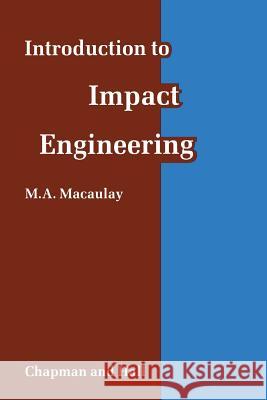Introduction to Impact Engineering » książka
Introduction to Impact Engineering
ISBN-13: 9789401079204 / Angielski / Miękka / 2011 / 276 str.
We are all familiar with impact. Lesser impacts such as hammering a nail, cracking an egg or stubbing a toe are part of everyday life. More violent impacts such as those caused by car crashes or bullets are fortunately less common but are still well enough known to be taken for granted. Very violent impacts such as meteorites striking the earth are outside our personal experience but we are aware of them. Despite this, impacts remain mysterious. They occur too quickly for us to follow what is happening and the evidence they leave behind is often ambiguous. Over the last thirty years improvements in high speed instrumen- tation and developments in computing have made them more comprehensible and an increasing amount of attention is being paid to the subject which is an area of expanding scientific and engineering research. A multi-disciplinary approach is not yet established and information is scattered in many places and expressed in a variety of jargons. In applied mathematics, impacts have provided interesting theoretical problems with elegant solutions but it has been difficult to check results experimentally. Impacts can change the behaviour of materials but similar changes can sometimes be produced in other ways and the underlying mechanisms are not clear. Empirical solutions to engineering problems have worked reasonably well but it is hard to know what to do if things go wrong.











